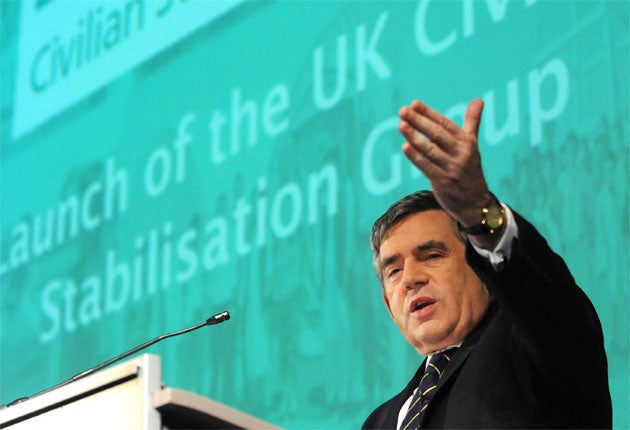Brown wins big Commons victory for vote reform
Labour unites as Tories fail to block referendum on Alternative Vote system

Gordon Brown's plan to hold a referendum next year on scrapping the first-past-the-post system for elections for Westminster won a convincing majority last night in the Commons.
MPs backed the historic change to the way Britain elects its politicians by 365 to 187 after the Liberal Democrats joined the vast majority of Labour MPs to support the move.
Under the proposal the country would be asked to choose between retaining the current electoral method or replacing it with the Alternative Vote (AV), where candidates are ranked in order of preference.
The battle over electoral reform, which is strongly opposed by the Conservatives, will now switch to the House of Lords. Ministers hope last night's majority of 178 will increase pressure on peers not to block the measure. With parliamentary time fast running out, plans for a referendum look likely to become embroiled in horse-trading between the parties over which government Bills are rushed into law before the election, expected on 6 May.
Last night's result came after a fiery four-hour debate in the Commons during which the Tories accused Labour of cynically attempting to rig the voting system in its favour.
The expected rebellion by large numbers of Labour MPs failed to materialise after they heeded their whips' pleas for unity.
Jack Straw, the Justice Secretary, denied the move was for electoral gain or designed to pave the way to a deal with the Liberal Democrats in a hung parliament. He said: "I cannot for the life of me see why the Conservatives do not have the courage of their convictions ready to make their arguments in favour of first-past-the-post... before the British people."
But the former Tory cabinet minister Douglas Hogg said Mr Brown had displayed not the "slightest interest" in electoral reform during 12 years in high office. "What we are actually dealing with here is an act of pure political cynicism," Mr Hogg said.
Richard Shepherd, the Tory MP for Aldridge-Brownhills, said the AV system was not proportionate and elected the "least objectionable" candidate.
The Conservatives also claimed that staging the referendum would cost £80m, arguing that the expenditure would be difficult to justify in straitened financial circumstances.
Earlier David Miliband, the Foreign Secretary, called for sweeping reforms to "re-set" the political system to be put to the country in a nationwide vote.
He went far beyond Mr Brown's referendum call as he supported asking the country to back the introduction of fixed-term parliaments. Mr Miliband's comments were seen as the foretaste of his personal manifesto for a future Labour leadership contest. He argued that Britain needed to do much more than simply introduce AV – although he welcomed it as a "really good step forward" – to restore confidence in its political system.
Under a Labour amendment to the Constitutional Reform and Governance Bill, a referendum would have to be held by the end of October 2011.
Join our commenting forum
Join thought-provoking conversations, follow other Independent readers and see their replies
Comments